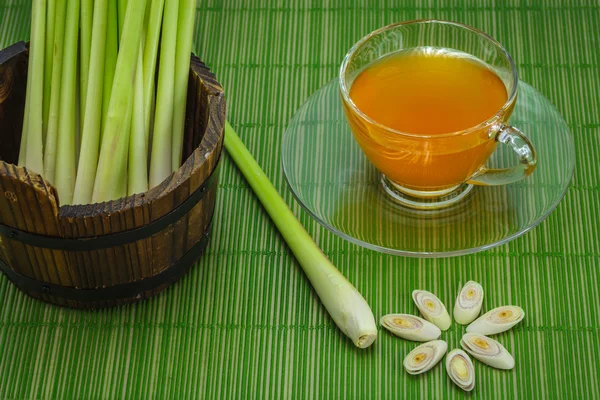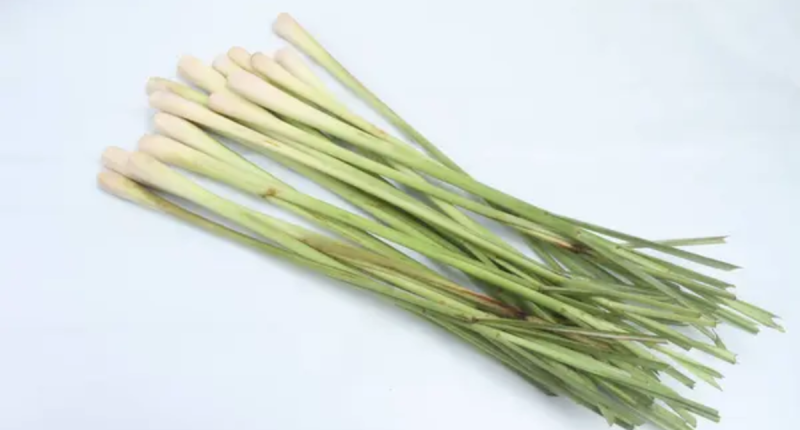Lemongrass is a versatile herb empowered by nature to fight high cholesterol and other unhealthy conditions in the human body. It is a tropical plant that has been used for centuries in traditional medicine to treat a variety of conditions. Lemongrass contains a number of compounds that may help to lower cholesterol levels, including:
- Citral: Citral is a compound that has been shown to reduce LDL (bad) cholesterol levels and increase HDL (good) cholesterol levels [1].
- Limonene: Limonene is a compound that has been shown to block the absorption of cholesterol from the intestine [2].
- Geraniol: Geraniol is a compound that has been shown to reduce cholesterol levels and improve lipid profile [3].
In addition to these compounds, lemongrass also contains antioxidants, which can help to protect the body from damage caused by free radicals. Free radicals can contribute to the development of high cholesterol and other chronic diseases.
A number of studies have shown that lemongrass may be effective in lowering cholesterol levels. For example, a study published in the journal “Phytomedicine” found that lemon grass extract significantly reduced LDL cholesterol levels and increased HDL cholesterol levels in rats [4].
Another study, published in the journal “Complementary Therapies in Medicine”, found that lemon grass tea was effective in lowering cholesterol levels in humans [5]. The study found that lemon grass tea significantly reduced LDL cholesterol levels and total cholesterol levels.
Lemon grass is a safe and effective way to lower cholesterol levels. It can be consumed as tea, a supplement, or in food.
RELATED: Foods to Avoid Because of High Cholesterol And What To Eat
Here’s How To Use Lemon Grass for High Cholesterol – Step-by-Step Guide

While Lemon grass is not a replacement for medical treatment, here is a step-by-step guide on how you can incorporate lemongrass into your diet to potentially help manage high cholesterol:
Step 1: Gather Your Ingredients
Before you begin, ensure you have all the necessary ingredients:
- Fresh lemongrass stalks
- Water
- A pot or kettle
- A knife and cutting board
- A strainer or tea infuser (optional)
- Honey or another natural sweetener (optional)
Step 2: Prepare the Lemongrass
- Take fresh lemongrass stalks and remove any loose or dried outer leaves.
- Cut off the root end and the upper green portion, leaving only the bulbous lower part of the stalk, which is typically used for cooking or making tea.
Step 3: Slice and Crush the Lemongrass
- Slice the lower part of the lemongrass stalk into smaller pieces to expose its inner layers.
- Use the flat side of a knife or a kitchen mallet to gently crush or bruise the slices. This helps release the aromatic oils and flavors.
Step 4: Boil Water
- Bring a pot of water to a boil. You can use a kettle for this purpose as well.
Step 5: Brew Lemongrass Tea
- Place the crushed lemongrass pieces into a teapot, tea infuser, or directly into a pot if you’re comfortable straining the tea later.
- Pour the boiling water over the lemongrass. Use approximately 1-2 stalks per cup of water, but you can adjust this to your taste.
- Allow the lemongrass to steep in the hot water for about 5-10 minutes, depending on your preference for flavor strength.
Step 6: Strain and Serve (Optional)
- If you didn’t use a tea infuser, strain the lemongrass tea to remove the solid pieces.
- You can sweeten the tea with a touch of honey or another natural sweetener if desired.
Step 7: Caution
You can drink lemongrass tea 2-3 times per day to help lower your cholesterol levels. You can also add lemongrass to your cooking or take a lemongrass supplement.
It is important to note that lemongrass is not a substitute for conventional medical treatment for high cholesterol. If you have high cholesterol, be sure to work with your doctor to develop a treatment plan that is right for you.
Other Benefits of Lemongrass

Lemongrass offers a range of potential health benefits beyond its use for high cholesterol. Here are some of the other benefits associated with lemongrass:
- Digestive Health: Lemongrass is known for its digestive properties. It can help relieve indigestion, bloating, and constipation. Drinking lemongrass tea or incorporating it into your meals may promote a healthier digestive system.
- Anti-Inflammatory: Lemongrass contains compounds that have anti-inflammatory properties. It may help reduce inflammation and provide relief from conditions such as arthritis and joint pain.
- Antioxidant Properties: Lemongrass is rich in antioxidants, which can help protect your cells from damage caused by free radicals. Antioxidants may play a role in preventing chronic diseases and promoting overall well-being.
- Immune Support: The vitamins and minerals in lemongrass, including vitamin C, vitamin A, and folate, can boost your immune system. It may help the body fight off common colds and infections.
- Calming and Stress Relief: The aroma of lemongrass is known for its calming and stress-reducing effects. It can be used in aromatherapy or as an ingredient in herbal teas to promote relaxation.
- Skincare: Lemongrass essential oil is used in skincare products due to its astringent and antiseptic properties. It may help with acne control and skin cleansing.
- Blood Pressure Regulation: Some studies suggest that lemongrass may help regulate blood pressure. This can be beneficial for those with hypertension.
- Pain Relief: Lemongrass may have analgesic properties, making it helpful in reducing pain and discomfort, especially in conditions like headaches and muscle pain.
- Antibacterial and Antifungal: Lemongrass has natural antibacterial and antifungal properties. It can be used to treat various skin and fungal infections.
- Weight Management: Some people use lemongrass for weight management because it can aid in digestion and boost metabolism.
- Respiratory Health: The antimicrobial and anti-inflammatory properties of lemongrass may help alleviate respiratory conditions such as coughs, colds, and asthma.
- Detoxification: Lemongrass can act as a diuretic, helping to eliminate toxins and excess water from the body. This may support kidney health and overall detoxification.
It’s important to note that while lemongrass has many potential benefits, it should not be used as a sole treatment for any serious medical condition.

Here are some additional ways to use lemongrass:
- Add lemongrass to your bath water for a relaxing and refreshing soak.
- Use lemongrass essential oil in a diffuser to freshen the air and repel insects.
- Add lemongrass to your favorite cleaning products to make a natural disinfectant.
- Use lemongrass essential oil to make a DIY massage oil or muscle rub.









